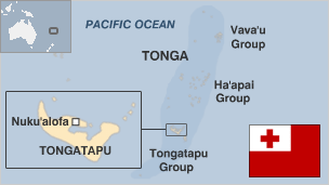
Facts and stats about Tonga
The Kingdom of Tonga is a sovereign state in Polynesia composed of 170 islands and inhabited by more than 103,000 people. It was named the “Friendly Islands” because of the warm reception it gave to Captain James Cook during his first visit to the region in 1773. Tonga was never under any foreign government. Tonga was a British protectorate until it became independent in 1970. In 2010, the country took an important step towards attaining a fully functional constitutional monarchy. It undertook legislative reforms paving the way for the first representative elections and a popularly voted parliament. This ended 165 years of feudal regime.
Tonga relies on government capital projects and more stringent control of its national budget for 2014 to reinforce economic growth this financial year. Decreasing remittances, low export performance and excessive public debt have troubled the island kingdom recently causing difficult economic conditions. Last year, the National Reserve Bank of Tonga declared a continuation of an accommodative monetary policy position to encourage investment. However, this has not been enough to translate to visible enhancement of the private sector.
At the present time, a lot depends on government investments while basic indicators show the need for stronger measures. Consumer prices increased from 2012 to 2013 by 1.1 per cent. This was the result of increases in imported food prices. Growth is projected to become stronger this year. The projection is traced to the implementation of the new budget policy; more construction activities and commencement of new public works; more ventures in agriculture, tourism and trade sectors; and, developments in the fisheries industry.

720 sq km
Sq. km. Ranked 173th in 2008.